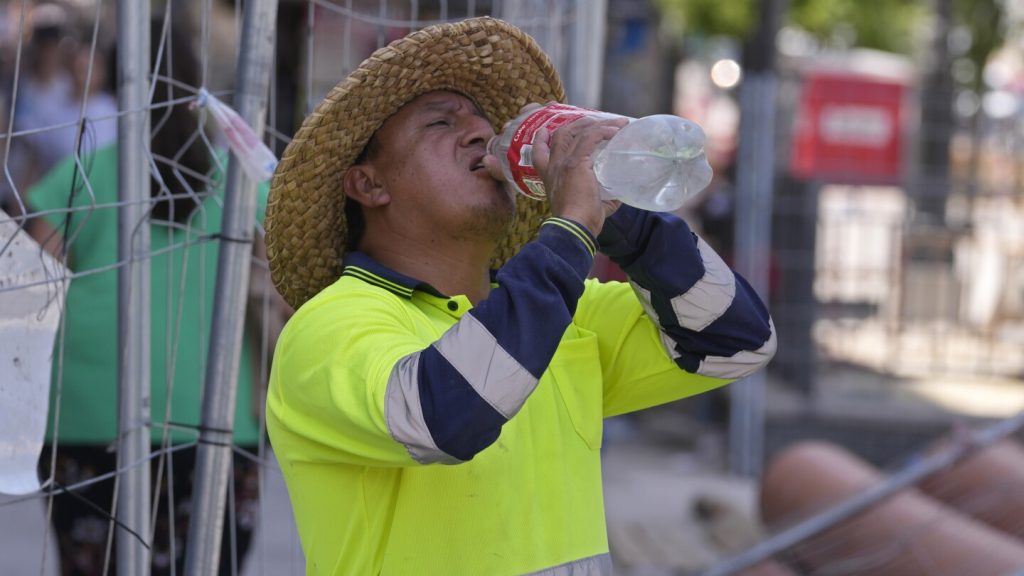The International Labor Organization issued a warning on Monday stating that over 70% of the global workforce is likely to be exposed to excessive heat during their careers. This exposure is linked to a range of health hazards, including air pollution, pesticides, and increased risks of cancer. The organization emphasized the need for governments to improve legislation to address climate change impacts on workers. According to Manal Azzi, team lead on occupational safety and health at the ILO, it is crucial to take these warnings seriously and implement measures to protect workers.
The ILO estimates that more than 2.4 billion workers worldwide are at risk of facing excessive heat as part of their jobs, up from over 65% in 2000. The report also highlights the growing connection between climate change and adverse health effects, such as cancer, cardiovascular disease, respiratory issues, and mental health concerns. Exposure to workplace hazards like ultraviolet radiation and air pollution is a significant concern for a large portion of the global workforce, with 1.6 billion workers being affected by each of these factors, leading to numerous deaths and health problems each year.
Specific subsets of workers are particularly vulnerable to the impacts of climate change, such as firefighters in the United States who are facing increasingly severe wildfires due to high heat and dry conditions resulting from climate change. The ILO stresses the importance of considering the health impacts on workers when addressing climate change, as the consequences can range from death to chronic diseases affecting millions of people. Some countries have already taken steps to protect workers by implementing legislation requiring regular surveillance of those exposed to heat, sunlight, air pollution, and other risks, while collective bargaining agreements have also helped mitigate the dangers.
The link between climate change and human health has become a focal point for U.N. agencies and environmental activists, who are working to raise awareness of the risks. The planet has experienced record monthly temperatures for ten consecutive months, according to the European Union’s climate agency. The World Health Organization projects that between 2030 and 2050, certain climate-related threats like malaria and water insecurity could result in an additional quarter of a million deaths annually. These alarming statistics underscore the urgent need for global action to address the health impacts of climate change on workers and society as a whole.
In conclusion, the report from the International Labor Organization sheds light on the significant challenges faced by workers worldwide due to climate change-induced health hazards. With a majority of the global workforce at risk of heat exposure, air pollution, and other dangers, governments and stakeholders must prioritize measures to protect workers and mitigate the impacts of climate change. By implementing stronger legislation, conducting regular surveillance, and promoting collective bargaining agreements, countries can work towards safeguarding the health and well-being of workers in the face of an increasingly warming world.


